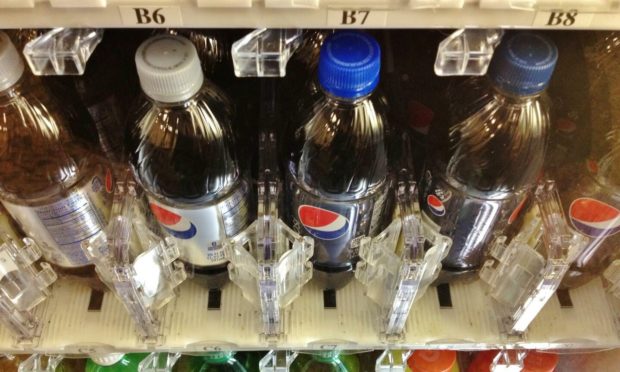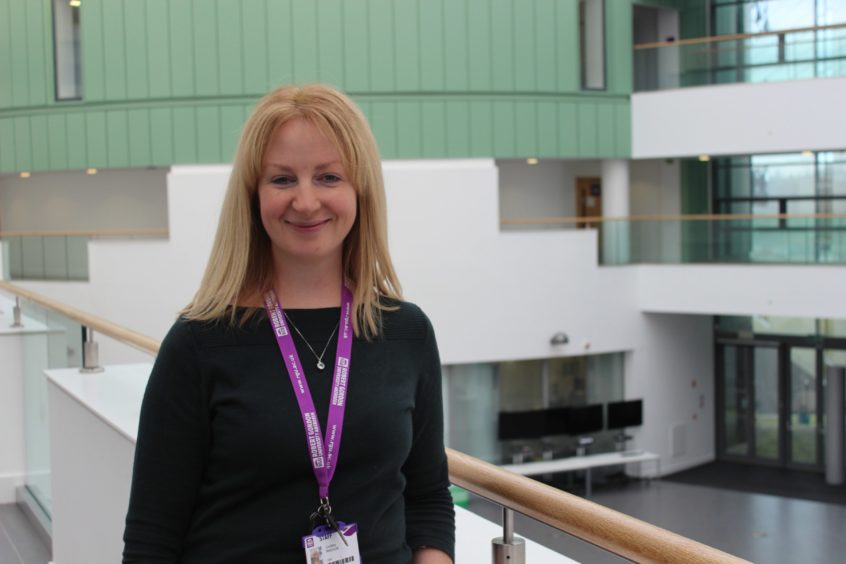Fizzy drinks are back on the menu at Aberdeen secondary schools.
Sugar-free, caffeinated soft drinks were taken off the menu in May, amid concern from teachers and parents over their impact on students’ health and behaviour.
Following consultation between Aberdeen City Council and teachers, parents and students over the summer, three sugar and caffeine-free soft drinks will be available to pupils.
Sugar-free soft drinks were introduced in April amid new nutritional regulations in schools.
Three drinks were available to students – Sugar Free Orange Tango, No Sugar Sprite, and Diet Pepsi – which contains caffeine.
From September 28, Tango and Sprite will be back in schools, alongside the caffeine-free Pepsi Max.
The drinks will be available during lunchtime only.
Hyperactivity: Pupils drinking 3-4 energy drinks a day
One of the main concerns was young people purchasing caffeinated drinks several times a day, including those with ADHD, leading to hyperactivity.
Several respondents backed the introduction of sugar and caffeine-free soft drinks, as a way of keeping students in school at lunchtimes, away from less healthy options out of school.
One student said: “Giving pupils the option of these drinks will encourage them to remain in school for lunch, as opposed to eating and drinking things that are even worse elsewhere.”
A teacher said: “I have concerns about the number of pupils drinking energy drinks.
“As part of my course, my pupils discussed it and there was a proportion of the class who had three to four cans a day.
“This is highly concerning.”
Another staff member was in favour of putting some fizzy drinks back on the menu.
They said: “Pupil choice is important, and giving them alternatives to sugared, caffeinated drinks from the local shops is important.”
‘Fizzy drinks should be once-a-week treat’
And a parent commented: “Water and milk are the only acceptable drinks for children.
“Fizzy drinks should be a treat once a week.”
However, another said secondary pupils were “old enough to decide whether or not they want sugar free drinks. Pupils should be given a choice.”
The council’s report, Sugar Free Soft Drinks in Secondary Schools, analysed the scientific evidence, as well as feedback from schools.
It concluded that “sugar free soft drinks are not a healthy option, but there is not enough evidence to say they should not be provided.”
Dr Lindsey Masson, a lecturer in nutrition at Robert Gordon University (RGU), spoke about the decision to put fizzy drinks back on the menu.
She said it was a question of balance.
“These sugar-free fizzy drinks may not be the healthiest option as they are acidic and contain no nutrients,” she said.
“However, you could argue that they are a healthier option than sugary drinks, and reducing sugar consumption and the prevalence of overweight and obesity is a priority.
“Currently the Scottish population is far exceeding the recommended sugar intake.
“Sugar-free drinks will not contribute to overweight or obesity if they are calorie-free.
“And they won’t contribute to dental decay.
‘Caffeine can be a problem’
She added: “Caffeine is different, that can be a problem.
“You could say that once in a blue moon it’s fine.
“But the problem is that it then becomes a habit.
“So I think it’s a good thing that there are no longer caffeinated drinks in schools.
“But hydration is important.
“If children don’t get enough fluid, it can cause headaches, dizziness, lethargy and poor concentration. This is not something children should experience while at school.
“It’s recommended that we drink six to eight cups or glasses of liquid per day.
“Water, lower-fat milk, lower sugar and sugar-free drinks count towards this.
“Water and milk is preferable for children, but some may not drink enough plain water, and a flavour may encourage them to drink more.”
More from the Schools and Family team
Round the U-bend: Unisex toilets in schools
Mad Aunt’s 24-hour cycle after niece’s rare cancer diagnosis

